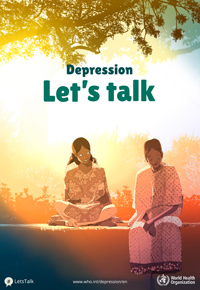Don’t Safe Abortions contribute to World Health?
The World Health Day marks the creation of the World Health Organization (W.H.O). The W.H.O was established in 1948 to provide direction to global health policy to ensure quality healthcare for all. http://www.who.int/en/
The theme for World Health Day this year is Depression. http://www.who.int/campaigns/world-health-day/2017/en/

Studies have shown that roughly 12 % of all women suffer from mental health problems, and that number shoots up to about one third for women who’ve experienced unwanted pregnancies. Since rates of mental problems were the same for women who had abortions and women who went through with their pregnancy, the researchers concluded that it isn’t abortion that’s the problem, but the unwanted pregnancy. http://jezebel.com/5866568/an-abortion-wont-make-you-crazy-but-an-unwanted-pregnancy-might
That means one in every three women with an unwanted pregnancy will suffer from depression!
Women and girls end up with unwanted pregnancies for so many reasons. Among them are a lack of knowledge about their bodies, lack of access to effective contraception, failure of contraception, rape, relationship issues, health reason and economic reasons.
These women need counselling, support and access to a safe abortion is that is their choice. https://www.youtube.com/watch?v=mwv81v96ick
W.H.O defines, unsafe abortion as a procedure for terminating a pregnancy performed by people who lack the requisite skills, or performed in an environment that is not in conformity with minimal medical standards or both. This definition is a product of the core concepts that were first outlined in a WHO Technical Consultation held in 1992.
W.H.O published the updated Safe abortion: Technical and Policy Guidance for Health Systems in 2012 and followed up in 2014 with the Clinical Practice Handbook for Safe Abortion Care. See more at: https://asap-asia.org/blog/who-clinical-practice-handbook-for-safe-abortion-care/#sthash.ljGCbQJ7.dpuf
Despite the public health, mental health, social justice and women’s human rights issues related to safe abortion access, it continues to be stigmatized and is limited by both state and religious actors. Those who suffer the most are always the most vulnerable groups. The young, the poor, the rural, the marginalized.
Unsafe abortion kills an estimated 47,000 women every year, and injures millions more.
This World Health Day 2017 we urge governments and policymakers and healthcare providers to recognize unwanted pregnancy as a risk factor for depression and work to safeguard women’s mental health by ensuring that they always have a choice for a safe abortion when faced with such an unwanted pregnancy.






